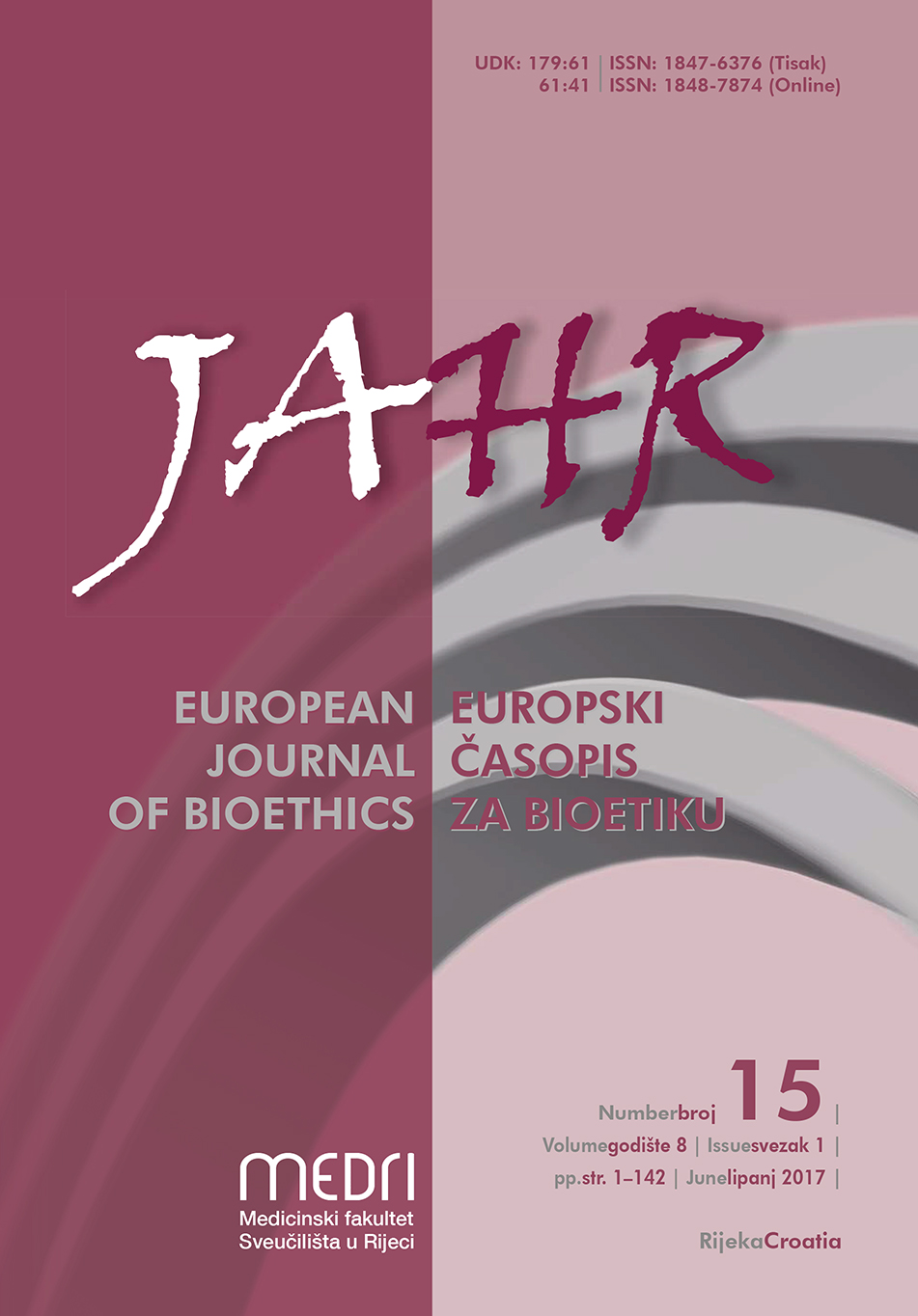Does the Distinctiveness of Palliative Care Research Require Distinct Ethical Guidelines?
Keywords:
palliative care, palliative sedation, vulnerability, end-of-life care, risk-benefit analysis, decision-making capacityAbstract
https://doi.org/10.21860/j.8.1.2
Palliative and end of life care is changing, becoming more widespread and improving for patients. Yet, the current literature in the field suggests that the evidence for palliative and end of life care is somewhat limited. Research on treatment decisions, family care, and advance directions are just a few of the areas that need rigorous research efforts. Palliative care research is essential in order to continue providing effective treatments to those suffering in the last stages of life. Indeed, the goal of good palliative care research is to relieve suffering and to improve quality of life. Similar to any other field, palliative care programs must develop on a research base, and patient care will suffer if it is not backed by sound research. However, weighted against this need are some who maintain that the ethical and practical challenges of palliative care research are unique and insurmountable. This analysis considers if distinct ethical guidelines are needed for palliative care research.
Downloads
Published
Issue
Section
License
Authors who publish with this journal agree to the following terms:
- Authors retain copyright and grant the journal right of first publication with the work simultaneously licensed under a Creative Commons Attribution License that allows others to share the work with an acknowledgement of the work's authorship and initial publication in this journal.
- Authors are able to enter into separate, additional contractual arrangements for the non-exclusive distribution of the journal's published version of the work (e.g., post it to an institutional repository or publish it in a book), with an acknowledgement of its initial publication in this journal.
- Authors are permitted and encouraged to post their work online (e.g., in institutional repositories or on their website) prior to and during the submission process, as it can lead to productive exchanges, as well as earlier and greater citation of published work (See The Effect of Open Access).



